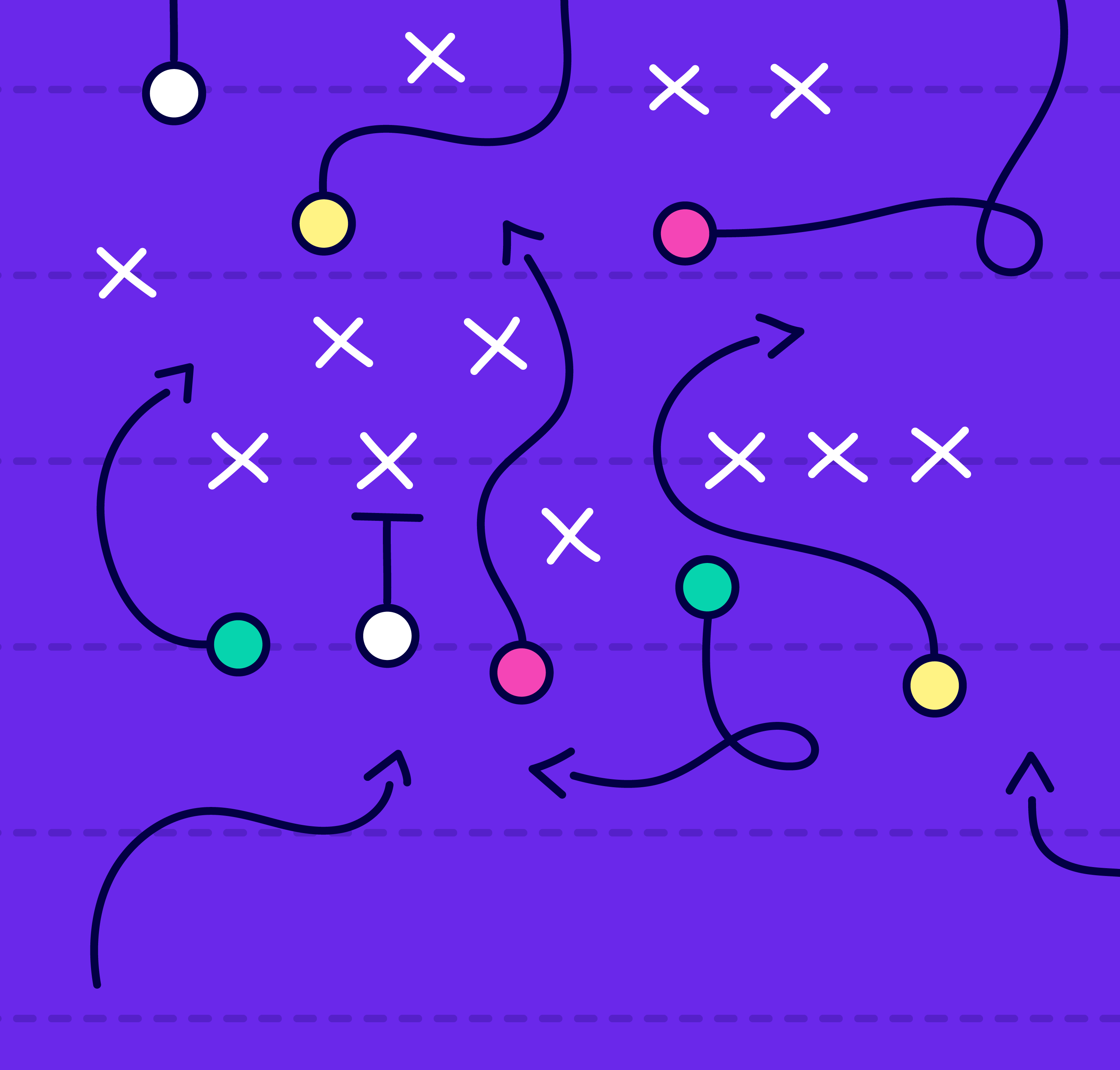
Articles
How Can Companies Use Wikis to Retain Information?
July 26, 2022

What do you love more: checking your email at 8:00 a.m. on the Fourth of July or taking an emergency work call during a holiday dinner?
If the answer is “neither,” then you need a company wiki. Because you shouldn’t be the only person in your organization that can answer questions about standard operating procedures and business practices.
What is a company wiki?
A company wiki is a repository of information you frequently refer to, update, and collaboratively add to with your team. It includes your company’s policies, procedures, and notes.
It gives you an easy way to keep what is most important organized and in a central location, which means your inbox isn’t flooded with questions about how to reset passwords or where to find information about sales quotas.
Why do you need a company wiki?
Looking for information that’s buried in files and paperwork can feel like an impossible mission. It’s not only wasted time, but taxing on your team.
Maybe you’ve come to realize that you’ve become your organization’s jack-of-all-trades. In fact, you may be so good at what you do that people reach out to you even when you’re on vacation. While it may be flattering to know that you’re needed, a company wiki can help you enjoy your precious PTO without having to explain SOPs.
Productivity.
A company wiki means your employees get to stay productive.
Spending less time searching for the information you need to be productive means more time spent applying that knowledge. Not all employees need to sit in on the same meetings, contribute to the same tasks, or have in-depth knowledge about the same information. A company wiki means they have access to whatever they need, whenever they need it — and most importantly, when it’s most convenient for them.
Keep employees satisfied.
A lack of employee training and support can increase employee dissatisfaction. This can be a huge problem if you’re worried about employee turnover rates. Even with training, you might find that some employees don’t retain information the same way or feel less inclined to ask management for help when they need it.
This doesn’t mean your employees aren’t effective. It just means they need access to important information as they work.
Job shadowing and mentorship are ideal options, but if you’ve got limited staff, it might not be logistically feasible.
The solution? We’re willing to bet that you already know what it is.
.gif)
(Psst… it’s a company wiki.)
Consistent access to information.
A company wiki offers your employees up-to-date and consistent information. This means you’ll save yourself the headache of tracing information back to its source and clarifying misinformation.
This is pretty important when it comes to business procedures, but when you add the benefit of avoiding uncomfortable and tense team drama? Say less.
I have a small business, do I still need a company wiki?
Yes!
Whether you own a small or large business, a company wiki is a useful tool that can help your team share information easily.
Information sharing is a best practice across all industries, regardless of organizational size. It keeps communication consistent and effective and makes scaling up easy.
Benefits of a company wiki for a small business.
Easy access to information means you’ll have more time to GSD (get stuff done). You can focus on high-quality customer service and providing innovative solutions, rather than rehashing information you already know.
A company wiki can help you delegate across your team. It makes roles flexible and gives everyone access to shared knowledge when they need it most. Make it a living, breathing document that everyone can add to and update, so you can ensure that the document is robust and accurate.
Knowledge is power.
.gif)
All employees in your business should have access to the knowledge and skills required to perform their roles well and enhance consumer satisfaction.
Employees in your business may be aware of common pieces of knowledge and information, but a company wiki can help them become highly informed and specialized in their roles by utilizing institutional knowledge.
Everyone gets to be a top performer, even if you aren’t always in the same meetings.
What is tribal knowledge?
Tribal knowledge refers to the niche, highly specialized information that people in various circles of your organization have. It allows them to excel and produce high-quality results. More often than not, this knowledge remains in the heads of senior or highly experienced employees.
But learning from experience is only half the story, and a company wiki can help you cut back on the time it takes for a new hire to perform like one of your seasoned veterans.
Why is tribal knowledge important?
Well, it’s the difference between being an up-and-comer and being an industry expert. Your tribal knowledge comes from relationship building, the unimagined scenarios that test your best and brightest, and from watching your organization and team evolve across time.
The problem? Sometimes it gets trapped in your employees’ heads without being shared anywhere else.
Capturing this information before it goes off to die with employees that quit, retire, or leave the industry means you make more on your investment in those employees.
You should make efforts to prevent losing such valuable information. It keeps you from making the same mistakes twice and spending serious money in the form of complex employee training.
How do I make a company wiki?
Start by picking the right software.
Putting together all of the most important information in your organization might seem like a lot.
Using a software that makes it easy for you to find and compile all of that information in one go can be a lifesaver.
Some software programs offer a vast selection of templates to pick from.
This makes it easy to incorporate pictures, videos, and GIFs into your company wiki so that you can create something that is information-rich and exciting.
Avoid overcomplicating the task by using clunky word processors and presentation programs. And definitely avoid anything that’ll make editing the document difficult when information needs to be updated.
Collect important information.
Before you start entering information directly into your company wiki, start by collecting key pieces of information and documenting processes.
Going through this process might help you realize that you’ll need a little assistance when it comes to keeping track of the important information your organization runs on. (We can help with that.)
How do you collect tribal knowledge?
To collect tribal knowledge, you should find out who knows what. As the saying goes, “you need to know what you don’t know.”
Does someone have a unique skill that has kept your business afloat? Is there a particular client relationship you’d like to know more about?
Maybe your IT wiz has explained how you can access payroll accounts from home (more than once, maybe?), but you still forget some of the steps.
We’ve all been there, and we’ve all wished we had written down that information so we could easily find it.
Employee feedback surveys about training and standard operating procedures might also help you figure out not only what you don’t know, but also what your team doesn’t know.
Once you identify gaps in knowledge, ask your experts questions. Or, invite them to directly document their expertise in writing.
What practices can I follow to make sure the information I collect is not useless?
Not all information is useful, and creating a database that is overloaded doesn’t necessarily add value to your wiki.
Focus on everyday information, standard operating procedures, contact information, or company goals.
In other words, what processes or policies keep your organization running on a day-to-day basis? What pieces of information do your employees most frequently use or access?
A good piece of advice is to make information collection a collaborative process. Get everyone involved! It takes a lot of effort and teamwork to properly identify what matters most in your business.
Create a wiki that you can add to your company playbook
Once you’ve put together all of the important information you need, you can start putting together your company wiki.
Because your company will grow and evolve, you’ll want to use a software that makes it easy to consistently update and change.
Knowledge management softwares offer a range of templates to start with, while traditional word processors might require starting from scratch.
You can tinker with the process by signing up for a demo with Trainual.
Similar Blog Posts





.avif)




